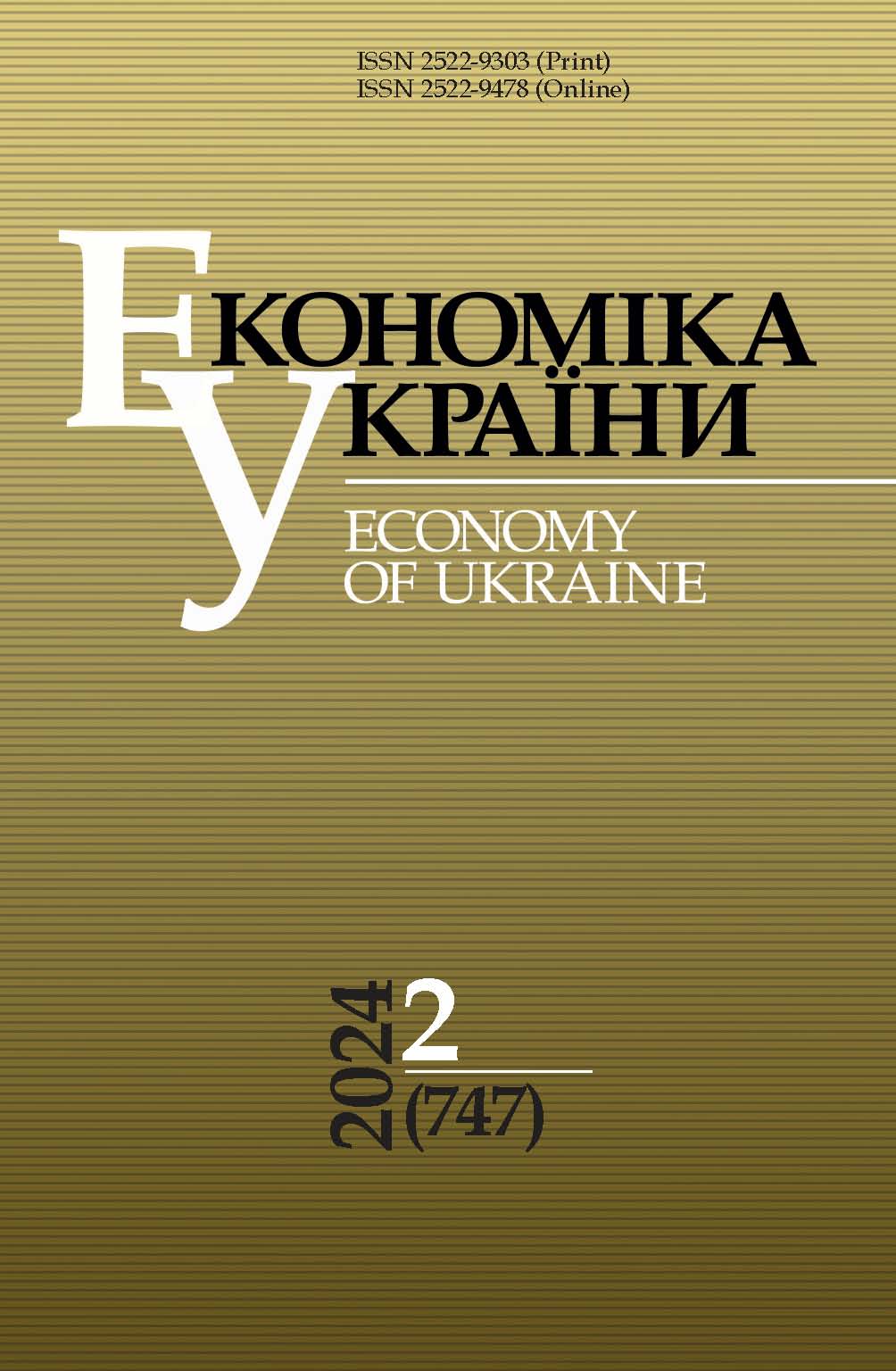UKRAINE AS HOSTAGE OF THE STATE
DOI:
https://doi.org/10.15407/economyukr.2024.02.083Keywords:
state; deformation; imbalance; economic relations; reformation; market economyAbstract
The reasons for Ukrainian economy’s protracted lag behind the countries that do not have natural potential comparable to it are considered. In particular, it is noted that, regardless of the periods generally divided into totalitarian, voluntarist, stagnation and "perestroika" along with the imitation of transition to a market economy, Ukraine cannot manage to overcome the status of a hostage of the state, that is, the apparatus of political power in society, which has never allowed not only radical changes in the economic system, but also any cosmetic ones like the Kosygin reform or "perestroika".
As a result of demagogues coming to power, instead of carrying out a balanced reform of economic relations system, the destruction of industry and agrarian sector took place for a long time, the production volume of technical means of production decreased catastrophically, and a critical imbalance arose not only between crop and livestock production, but also within these industries. Consequently, Ukraine, which was the flagship among the East European countries, lost its leadership positions both in industry and agriculture. Meanwhile, Poland, whose economy was reformed by educated intellectuals, turned from a typical agrarian country into a developed industrial-agrarian state.
In the current situation, the most productive workers in terms of age are moving abroad from Ukraine, including qualified specialists, and a significant share of value-added products created by their labor is often imported by Ukraine, which almost doubles foreign employers’ profits at the expense of migrants and Ukrainian consumers. And this state of affairs acquired the signs of insuperable, despite the fact that billions worth of subsidies was allotted from the state budget every year to support both the extractive industry (in particular, coal mining) and agriculture.
References
Heyets, V. (2015). Overcoming the quasimarketness – a way to the investment-oriented model of economic growth. Economy of Ukraine. 58. 6(643). 4-17 [in Ukrainian].
Heyets, V. (2016). Ukraine's economy: key problems and prospects. Economics and forecasting. No. 1. P. 7-22. https://doi.org/10.15407/eip2016.01.007 [in Ukrainian].
Borodina, O. (2006). State support of the agriculture: concepts, mechanisms, efficiency. Economics and forecasting. No. 1. P. 109-125. URL: http://eip.org.ua/?page_id=189&mode=view&year=2006&issueno=1 [in Ukrainian].
Trehobchuk, V. (1993). Ecology, scientific and technical progress, and market. Economy of Ukraine. 36. 2. 13-23 [in Ukrainian].
Tkachenko, O., Alekseyev, O., Illarionov, V. et al. (2004). Phenomenon of Ukraine: 1991-2004 reforms. Kyiv. 602 p. [in Ukrainian].
Heyets, V. (2020). Socialization, social innovations, and social interaction of business and state. Ukrainian society. No. 3(74). P. 9-23. https://doi.org/10.15407/socium2020.03.009 [in Ukrainian].
Kolodko, G. (2015). The experience of Poland can be useful for Ukraine. Economy of Ukraine. 58. 6(643). 38-40 [in Ukrainian].
Mochernyi, S. (1999). Economic theory. Kyiv. 590 p. [in Ukrainian].
Zveryakov, M. (2015). On a change of the model of economic development. Economy of Ukraine. 58. 6(643). 41-49 [in Ukrainian].
Yakubovs’kyi, M., Soldak, M. (2017). Regional peculiarities of industry development in Ukraine. Economy of Ukraine. 60. 3(664). 35-48. URL: http://economyukr.org.ua/?page_id=723&lang=uk&aid=236 [in Ukrainian].
Heyets, V., Hrytsenko, A. (2012). Economy and society: unexplored facets of mutual influence (reflections after reading). Economy of Ukraine. 55. 3(604). 4-24 [in Ukrainian].
Downloads
Published
Versions
- 29.02.2024 (2)
- 29.02.2024 (1)
How to Cite
Issue
Section
License
Copyright (c) 2024 Publisher PH "Academperiodyka" of the NAS of Ukraine

This work is licensed under a Creative Commons Attribution-NonCommercial-NoDerivatives 4.0 International License.



